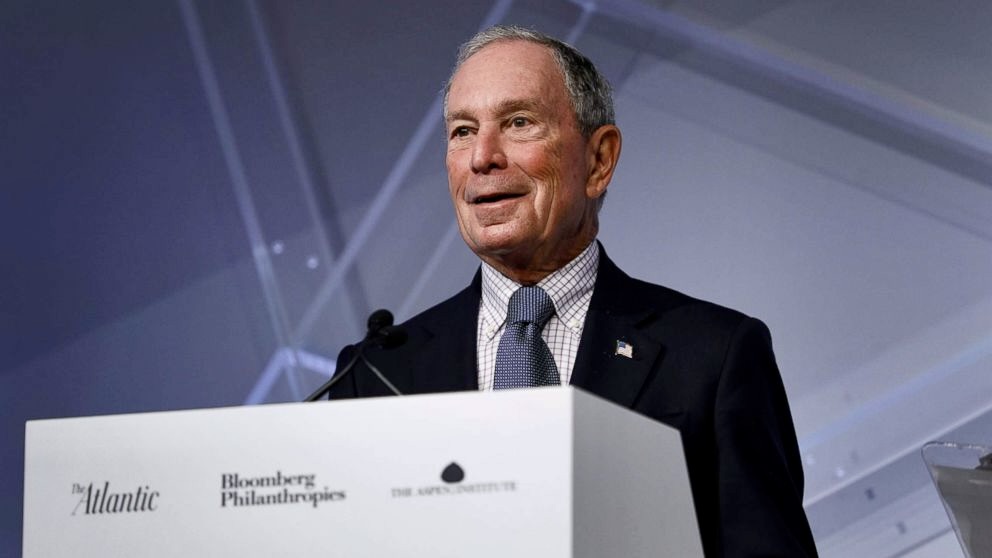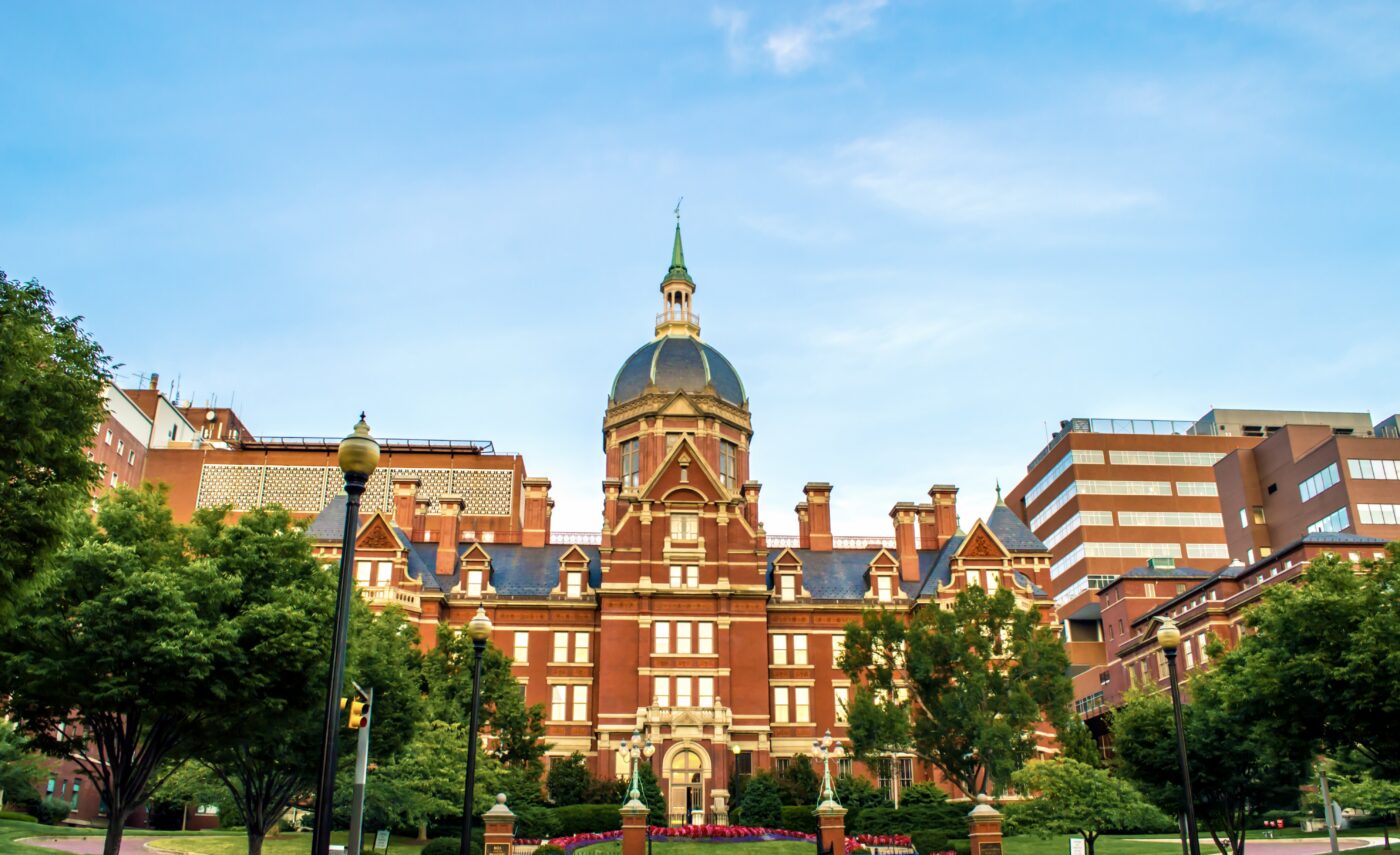Johns Hopkins University has recently announced a groundbreaking financial aid investment of $1 billion from Bloomberg Philanthropies. This gift will provide comprehensive financial support to future generations of doctors, nurses, and public health professionals. The primary aim of this donation is to eliminate economic barriers, allowing students from diverse socioeconomic backgrounds to attend Johns Hopkins’ prestigious medical and graduate programs without the burden of tuition and living expenses.
Expanding Access to Medical Education
The nature of this donation ensures that most medical students at Johns Hopkins will now be able to attend tuition-free. Additionally, many students will receive further support to cover their living expenses. This financial aid initiative is designed to attract and support top talent from middle-class and low-income families, ensuring that financial constraints do not hinder their educational aspirations. For the majority of students pursuing an MD at Hopkins, this gift will cover the full cost of attendance, which includes tuition and living expenses such as rent.
Beyond the School of Medicine, this generous donation will also enhance financial aid for nursing, public health, and other graduate programs at Johns Hopkins. By removing financial barriers, the university aims to attract a diverse pool of talented students who are passionate about making significant contributions to their fields and communities.
Historical Context and Previous Contributions
This $1 billion gift from Bloomberg Philanthropies builds on a series of previous donations to Johns Hopkins. Notably, in 2018, Bloomberg made a record contribution of $1.8 billion to undergraduate financial aid, which had a significant impact on the socioeconomic diversity of the student body. The latest gift is a continuation of Bloomberg’s commitment to addressing complex health challenges by enabling talented students from all backgrounds to access higher education and pursue careers in essential fields.
Free Tuition for Families Earning Under $300,000
Johns Hopkins University will offer free tuition to students pursuing a Doctor of Medicine (MD) degree whose families earn under $300,000 annually. This threshold, which encompasses 95% of American families, represents a significant expansion of eligibility for financial aid. By setting the income threshold at this level, Johns Hopkins ensures that nearly all students from middle-class and lower-income families can pursue their medical education without the financial burden of tuition costs. This policy is particularly beneficial for families who fall into the gap where they earn too much to qualify for traditional financial aid but still find the cost of medical school prohibitive.
The eligibility criteria for this free tuition initiative are based on comprehensive financial assessments. Prospective students must complete the CSS Profile Application, which provides a detailed evaluation of the family’s financial situation.
This application process requires the submission of prior year parental federal tax returns and other relevant documentation through the Institutional Documentation Service (IDOC). By gathering thorough financial information, Johns Hopkins can ensure that aid is distributed equitably, prioritizing students from families with the greatest financial need.
Comprehensive Support for Families Earning Under $175,000
In addition to offering free tuition, the financial aid initiative extends further support to medical students from families earning up to $175,000 annually by covering their living expenses. This includes costs such as housing, food, transportation, and personal expenses, which are significant components of the total cost of attending medical school. By addressing both tuition and living expenses, Johns Hopkins provides a holistic financial support package that alleviates the full spectrum of costs associated with medical education.
The comprehensive support for living expenses acknowledges the reality that tuition is only part of the financial challenge faced by medical students. Living expenses can add up quickly, creating a substantial financial burden that can distract students from their studies and clinical training. By covering these costs, Johns Hopkins allows students to fully immerse themselves in their education without the constant worry of financial stress.
Broad Impact on Current and Incoming Students
The financial aid initiative is designed to immediately and broadly advance the student body at Johns Hopkins School of Medicine. Nearly two-thirds of current and incoming medical students will qualify for either free tuition or the combined package of free tuition and covered living expenses. This broad eligibility ensures that a significant portion of the student population will benefit from the initiative, fostering a more diverse and inclusive environment within the medical school.
Current students who meet the eligibility criteria will receive updated financial aid packages that reflect the new levels of support. The Financial Aid Office at Johns Hopkins has already reviewed the financial circumstances of both current and incoming students, ensuring that updated award letters are sent out promptly. This proactive approach guarantees that students receive their updated financial aid packages without any additional administrative burden, allowing them to focus on their education and training.

The 2018 Bloomberg Donation
In November 2018, Michael R. Bloomberg made history with his unprecedented $1.8 billion donation to Johns Hopkins University in support of financial aid. This remarkable gift was the largest-ever single contribution to any college or university. It was intended to fuel student access and mobility, ensuring that a Johns Hopkins education would be within reach for qualified, high-achieving students, regardless of their financial backgrounds.
The 2018 donation marked the fulfillment of a promise made by Johns Hopkins University President Ronald J. Daniels at his installation in 2009. President Daniels committed to making the university permanently need-blind, a goal that had been a key priority of his presidency and was reflected in the university’s strategic vision, the Ten by Twenty.
This vision aligned with the ideals of the university’s founder, who believed that Johns Hopkins should admit students based on “their character and intellectual promise” rather than their financial circumstances.
Bloomberg’s gift guaranteed that Johns Hopkins could permanently and publicly commit to need-blind admissions, making it a loan-free institution and significantly reducing the financial burden on students and their families.
The donation eliminated student loans from financial aid packages for all current and future undergraduate students, replacing them with scholarships. This new policy applied immediately to current students starting in the spring semester of 2019 and continued for future cohorts.
In his New York Times op-ed announcing the gift, Bloomberg—a 1964 graduate of Johns Hopkins—highlighted the national challenge of college access for low- and middle-income students. He pointed out that many talented students miss out on educational opportunities due to financial constraints, which also means colleges miss out on their diverse perspectives and talents.
Bloomberg’s vision was to build a financial aid program at Johns Hopkins that maximized student access and mobility, positioning the university among the top institutions in terms of per-student financial aid support.
The impact of this donation has been profound, transforming the financial aid landscape at Johns Hopkins and opening doors for countless students. For example, Noah Smith, a sophomore neuroscience major and the first in his family to attend college noted that scholarship support made it possible for him to attend his first-choice school and consider future education in medical school without the added burden of undergraduate debt.
President Daniels emphasized that Bloomberg’s gift reflected a deep belief in the transformative power of higher education and its accessibility to all qualified students, regardless of their financial means. The gift has allowed Johns Hopkins to honor this directive fully, providing equal opportunities for generations of students and setting a powerful example of philanthropy’s role in higher education.
Back to the Present Donation
Each school within Johns Hopkins University will allocate the proceeds from this gift towards financial aid for graduate students. The School of Medicine will offer the aforementioned tuition-free and full-ride levels of financial aid. Similarly, the schools of nursing and public health will use their funds to enhance their flagship programs—the Master of Science in Public Health (MSPH) and the MSN Entry into Nursing program—thereby supporting students poised to make significant impacts on American health challenges.
Other graduate schools within the university, such as the Schools of Education, Engineering, Business, Arts and Sciences, Advanced International Studies, and the Peabody Institute, will use their gift funds for specific degrees or other graduate student needs and priorities. Detailed information about the specific impacts of this gift at each graduate school can be found on their respective financial aid websites, and here is a link to those websites.
The $1.8 billion gift in 2018 laid a robust foundation for financial accessibility at Johns Hopkins University, which is now being expanded and deepened by the latest $1 billion donation from Bloomberg Philanthropies. Both gifts are transformative, reinforcing the university’s commitment to need-blind admissions and comprehensive financial support for students, thus continuing to make Johns Hopkins a beacon of educational equity and excellence.
Enhancing Socioeconomic Diversity
The financial aid initiative at Johns Hopkins is a significant step towards enhancing socioeconomic diversity within the School of Medicine. By making medical education accessible to a broader range of students, the university aims to create a more inclusive and dynamic learning environment. This diversity is essential for fostering a rich exchange of ideas and perspectives, which is crucial in the field of medicine where understanding and addressing a variety of patient backgrounds and needs is paramount.
Reducing Financial Stress and Student Debt
One of the primary goals of this financial aid initiative is to reduce the financial stress and debt burden on medical students. The high cost of medical education often results in substantial student loans, influencing career choices and deterring students from pursuing certain specialties or working in underserved areas. By offering free tuition and covering living expenses, Johns Hopkins enables students to graduate with minimal or no debt. This financial freedom allows graduates to make career decisions based on their passions and societal needs, rather than financial constraints.
The reduction of student debt also has long-term benefits for the healthcare industry. Graduates who are not burdened by debt are more likely to pursue careers in primary care, public health, and other fields that are critical to addressing healthcare disparities and improving health outcomes in underserved communities. By reducing financial barriers, Johns Hopkins is contributing to the development of a healthcare workforce that is better equipped to meet the needs of a diverse population.
Comprehensive Financial Support
This initiative’s financial support goes beyond tuition and living expenses. It includes additional resources and support services that contribute to the students’ overall well-being and academic success. By alleviating financial stress, students can fully engage in their studies, participate in research, and take on leadership roles within the university and the broader medical community. This holistic approach ensures that graduates are not only academically prepared but also well-rounded individuals ready to take on leadership roles in their respective fields.
The financial aid initiative funded by Bloomberg Philanthropies’ $1 billion gift is a step towards making medical education at Johns Hopkins University more accessible and equitable. By providing free tuition and covering living expenses for the majority of its medical students, Johns Hopkins is setting a new standard for financial support in higher education.
Addressing the Shortage of Health Professionals
The United States is currently facing a significant shortage of doctors, nurses, and public health professionals, a crisis exacerbated by factors such as an aging population, increased demand for healthcare services, and a wave of retirements among healthcare workers.
Physician Shortage
The Association of American Medical Colleges (AAMC) projects a shortage of up to 124,000 physicians by 2033, including shortfalls in both primary care and specialty areas.
Nursing Shortage
The American Association of Colleges of Nursing (AACN) highlights a growing nursing shortage. Projections indicate a need for over 200,000 new registered nurses each year to meet increasing demand.
Public Health Workforce Shortage
The Association of Schools and Programs of Public Health (ASPPH) reports a significant shortage of public health professionals, with an estimated 250,000 additional workers needed to meet the nation’s public health needs.
The high cost of medical, nursing, and graduate education often deters talented students from low-income and middle-class families from pursuing these careers. This financial barrier, coupled with existing shortages, contributes to healthcare disparities and limits access to quality care, especially in underserved communities.
The $1 billion gift from Bloomberg Philanthropies is a significant step towards mitigating this crisis by reducing financial barriers and enabling more students to pursue their passions in healthcare. This initiative is particularly timely as the country grapples with a disturbing decline in life expectancy and the escalating need for innovative healthcare solutions. By investing in the next generation of healthcare professionals, this gift aims to address critical workforce shortages and improve the overall health and well-being of the nation.
Broader Implications for Graduate Education
In addition to supporting medical students, the Bloomberg Philanthropies gift will benefit other graduate programs at Johns Hopkins. The School of Nursing and the Bloomberg School of Public Health will use the funds to bolster their flagship programs, the Master of Science in Public Health (MSPH) and the MSN Entry into Nursing program, respectively.
Other graduate schools within Johns Hopkins, including the Schools of Education, Engineering, Business, Arts and Sciences, Advanced International Studies, and the Peabody Institute, will deploy the gift to support specific degrees and other student needs.
Institutional Commitment to Reducing Student Debt
This donation aligns with Johns Hopkins’ ongoing commitment to reducing student debt. The School of Medicine’s debt-reduction initiative, launched in 2020, has already made significant strides in this area. Thanks to prior scholarships and contributions from donors, the average student loan debt for School of Medicine graduates had declined to approximately $105,000 by the 2023–24 academic year. The new gift from Bloomberg Philanthropies will further alleviate the financial burden on medical students, ensuring that debt does not dictate their career choices.
Promoting Interdisciplinary Leadership
Part of the $1 billion gift will also support the development of a new program aimed at nurturing interdisciplinary leaders in research, industry, and government. This initiative will focus on PhD education and training, encouraging innovative approaches and collaborations across various fields. By fostering a new generation of impact-focused leaders, Johns Hopkins aims to drive progress and address some of the most pressing health challenges of our time.
Long-Term Impact and Sustainability
This donation will secure graduate financial aid at Johns Hopkins in perpetuity, ensuring that future generations of students can benefit from the same level of support. The financial aid expansion will not only attract the best and brightest students but also transform the socioeconomic makeup of the university’s graduate programs. By enabling students to pursue their dreams regardless of financial background, Johns Hopkins is poised to make a lasting impact on the healthcare and education landscapes.
Support for International Students
Johns Hopkins is also committed to supporting international students. The Johns Hopkins Medicine International Scholarship Program provides institutional scholarships to help reduce the financial burden on international medical students. This initiative aims to nurture the next generation of healthcare leaders from around the world, further enhancing Johns Hopkins University’s global impact.
February 2024 - Ruth Gottesman's Donation Announcement and Its Significance
In February 2024, medical education witnessed a monumental shift with the announcement of Ruth Gottesman’s $1 billion donation to the Albert Einstein College of Medicine. This historic gift set a new precedent for philanthropic contributions to medical education, underscoring the critical importance of financial support in shaping the future of healthcare. Gottesman’s donation was aimed at significantly enhancing financial aid, thereby ensuring that talented students from diverse backgrounds could pursue their dreams without the burden of overwhelming debt.
The February announcement resonated deeply within the academic and medical communities, highlighting the transformative power of such large-scale philanthropy. Similar to the recent Bloomberg Philanthropies gift to Johns Hopkins University, Gottesman’s contribution was a beacon of hope for aspiring medical professionals. It emphasized the necessity of financial accessibility in medical education, a theme that has gained increasing traction in recent years as the costs associated with becoming a healthcare professional continue to rise.
Gottesman’s donation is closely related to the goals and ambitions of Bloomberg Philanthropies’ recent $1 billion gift to Johns Hopkins. Both initiatives share a common mission: to remove economic barriers and provide comprehensive support to medical and graduate students, ensuring that financial constraints do not impede their educational and professional aspirations. These landmark gifts reflect a broader movement within higher education to promote equity and inclusivity, fostering a more diverse and talented pool of healthcare professionals.
Johns Hopkins University’s new financial aid initiative, set to commence in the fall of 2024, builds on the momentum created by such transformative donations. The comprehensive support provided by Bloomberg Philanthropies will enable Johns Hopkins to offer free tuition and cover living expenses for medical students from families earning up to $175,000 annually. This initiative mirrors the goals of Gottesman’s donation, aiming to alleviate the financial burdens that often deter talented individuals from pursuing careers in medicine.
The February announcement of Ruth Gottesman’s donation serves as a pivotal reference point for understanding the significance of Bloomberg Philanthropies’ recent gift. Both contributions are part of a larger narrative that seeks to redefine the financial landscape of medical education. By providing substantial financial aid, these donations help to cultivate a new generation of healthcare professionals who are motivated by passion and dedication rather than financial necessity.
For readers interested in exploring the broader implications of these transformative gifts and the ongoing efforts to enhance financial accessibility in medical education, further information is available in an in-depth article about Ruth Gottesman’s $1 billion legacy at Albert Einstein College of Medicine. This article provides a comprehensive overview of how large-scale philanthropy is changing the future of medical education and can be found here.
The parallels between Gottesman’s donation and Bloomberg Philanthropies’ gift to Johns Hopkins underscore a significant trend in higher education philanthropy. Both contributions highlight the critical role that financial support plays in ensuring that the most talented and passionate students can access top-tier medical education, regardless of their economic background. As these initiatives continue to unfold, they set a powerful example for other institutions and donors, illustrating the profound impact that targeted financial aid can have on the future of healthcare.
Growing Trend of Tuition-Free Medical Education
There are a number of schools now that are offering free medical school tuition alongside Albert Einstein College of Medicine and Johns Hopkins, reflecting a broader trend towards making medical education more accessible and reducing the financial burden on students.
Johns Hopkins University, with its recent announcement backed by Bloomberg Philanthropies’ $1 billion gift, joins this notable list of institutions dedicated to removing financial barriers for medical students. This initiative at Johns Hopkins not only offers free tuition but also extends to covering living expenses for eligible students, setting a new standard in comprehensive financial support.
The historical context provided by Ruth Gottesman’s donation in February offers valuable insights into the transformative potential of Bloomberg Philanthropies’ recent gift to Johns Hopkins University. Both donations are part of a broader movement to enhance financial accessibility in medical education, fostering a more diverse and inclusive environment that empowers the next generation of healthcare leaders. By exploring the links between these significant contributions, readers can gain a deeper understanding of the evolving landscape of medical education philanthropy and its far-reaching implications for the future of healthcare.
Investment in the Future
The $1 billion gift from Bloomberg Philanthropies marks a significant milestone in Johns Hopkins University’s history. By providing comprehensive financial support to medical and graduate students, this donation will have a profound and lasting impact on the university and the broader healthcare community.
It represents a bold step towards eliminating economic barriers and ensuring that the brightest minds can pursue their educational and professional goals without financial constraints. As Johns Hopkins continues to lead in medical and public health education, this gift will play a crucial role in shaping the future of healthcare and research, benefiting society as a whole.




